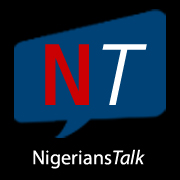kunledurojaiye
Archive for
The Presidential Pardon – A Goodluck Signal?
Signalling is basically an indirect means of transferring information between two or more parties via available communication channels. The ‘agent’ transfers the message, while the ‘principal’ receives, analyzes and acts on it. A most common example in economics involves an individual seeking employment. The individual signals to the employer by constructing a resume replete with skills, expertise, competence and experience that will command attention and intrigue, influencing the employer to schedule an interview subsequently. Every day, individuals engage in varied forms of spoken and unspoken signals to pass across messages to others. Husbands signal to wives and vice-versa, subordinates to bosses, and leaders to followers.
On the 12th of March, 2013, there were reports that the President and Commander-in-Chief of the Federal Republic of Nigeria, Goodluck Ebele Jonathan, requested approval from the Council of State to grant presidential pardon to a list of individuals, including former Governor of Bayelsa State, Diepreye Alamieyeseigha. Now, history has it  that Mr. Alamieyeseigha was sworn-in as Governor on May 29, 1999, re-elected in 2003 for a second term, and impeached for corruption related charges on December 9, 2005. According to the BBC, he was initially apprehended in September 2005 as he travelled through London, and subsequently charged to a UK court for money laundering. London Metropolitan police actually found £1m in cash at his London home. He was granted bail in the UK having surrendered his passport. Nonetheless, Governor Alameiyeseigha surfaced quite mysteriously in Bayelsa in December 2005. He unfortunately could not recall details of his miraculous transit from London to Nigeria. Eventually, in 2007, he pleaded guilty to charges of money laundering and false declaration of assets at a Nigerian High Court, and was sentenced to 12 years in prison; 2 years each for the 6 charges, running concurrently, backdated to his first arrest 2 years earlier. Because of the backdating he ended up spending less than a day in prison.
that Mr. Alamieyeseigha was sworn-in as Governor on May 29, 1999, re-elected in 2003 for a second term, and impeached for corruption related charges on December 9, 2005. According to the BBC, he was initially apprehended in September 2005 as he travelled through London, and subsequently charged to a UK court for money laundering. London Metropolitan police actually found £1m in cash at his London home. He was granted bail in the UK having surrendered his passport. Nonetheless, Governor Alameiyeseigha surfaced quite mysteriously in Bayelsa in December 2005. He unfortunately could not recall details of his miraculous transit from London to Nigeria. Eventually, in 2007, he pleaded guilty to charges of money laundering and false declaration of assets at a Nigerian High Court, and was sentenced to 12 years in prison; 2 years each for the 6 charges, running concurrently, backdated to his first arrest 2 years earlier. Because of the backdating he ended up spending less than a day in prison.
Such is the profile of one of the major purported recipients of the March 2013 presidential pardon. This development really shouldn’t surprise anyone as the president once referred to Alameiyeseigha as his political benefactor. Again, this is rational and understandable because Mr Jonathan served as Deputy Governor to Alameiyeseigha from 1999 to 2005, emerging as Governor after the latter’s impeachment. A benefactor is one who helps develop and bring up another, and as such, there is permissible reason to Jonathan’s description of the ex-governor. No surprise there.
The real issue however is the message emanating from the Jonathan-led government. The agent has signalled the principal. The leader has acted, leaving the followers to hear, see and receive. The masquerade has danced, the village ponders. The gong has been beaten, the subjects mull over the sound. What exactly is this government saying to the people?
A number of possibilities exist – one, it could be a simple gospel type message starting with “He who is without sin should cast the first stone”, and ending with the verdict “Alams, go and sin no more”. Two, maybe it’s the government’s way of demonstrating its Transformation Agenda… changing destinies, transforming ex-convicts. After all, amnesty is granted to militants as part of transformation. Old things have passed away and (by transformation) all things are new. Third, perhaps it’s an obvious signal that a Nigerian can assume an Executive role, commit economic and financial crimes, mysteriously jump bail, spend a day in prison, get released, and assume political relevance again – all it takes is time. Recall that Mr Bode George, who was indicted, convicted and sentenced to prison for fraud, got released in February 2011, to meet much pomp and celebration.
What impressions are being created in the minds of the young generation? That fraud, theft, and economic crimes are frequently embraced by this regime? Or in simple terms, that you can do whatever you want, serve your time ‘creatively’, and emerge eventually as a celebrated personality?
How do teachers in Primary and Secondary Schools teach their students not to steal? How do professors communicate the rudiments of ethical behaviour to their college students? How do you convince the average trader on the streets not to engage in undue opportunistic behaviour in a bid to achieve abnormal profit? How will religious folk, juxtapose the message of ‘sowing and reaping’ with vivid stories of transformed ‘ex-convicts’ around? What are the impacts of such signals on national values, if they still exist?
It would help if there were a commensurate number of corruption cases fully investigated, charged and convicted by the same regime. We however struggle to cite any cogent cases. Little wonder the Opposition considers Jonathan’s government of lacking the capacity to tackle corruption. When people see dark clouds in the sky, it is only reasonable to assume that rain is about to fall. When the orchestra sees the conductor wave his baton, it is time to play. When the entertainer hears the rhythm and kick, it is time to dance. They are only reading the signals.
How to Join a Political Party
Information is power… a commonly referenced phrase. The world, at large is said to be in the information age. Clearly, knowledge is king in these digital times. An individual’s wealth of information and knowledge can very well distinguish him or her. Where it remains difficult to access knowledge, the bane of societal transactions results… information asymmetry. Information, in today’s world, must be available, accessible, verifiable and reliable.
Every now and then, one hears this question thrown to the public fore – “How do I join a political party in Nigeria?” “What’s the process to follow?” Naturally, when people require such information nowadays, a Google search does the trick, yielding as many results as possible, meeting the information need. However, a quick Google search for the process of joining a political party in Nigeria yields little or no information. Link to link, page to page, there is hardly a well laid out process for joining. So, for the politically minded Nigerian youth, interested in getting involved at the minimal level of party membership, information asymmetry is the first bottleneck.
According to the Independent National Electoral Commission (INEC) website, there are currently 25 registered political parties in Nigeria. 7 of these have listed websites, but only 2 are functional at the moment – PDP and ACN. Websites have become a basic and primary information channel. The PDP website alone includes a page on ‘How to Join’, detailing eligibility for membership and steps to follow at Zone, State, Local Government and Ward levels. No other party website provides this information. In a country with up to 135 million connected GSM lines as at December 2012, such information ought to be widely spread and readily available online and perhaps on mobile devices. The inadequacy of reliable and clear information in this regard has resulted in people depending on ‘word of mouth’ as an alternative source of information on how to join a political party.
The generally accepted and verbally communicated process of joining a political party in Nigeria is as follows: Interested individuals are advised to visit the respective party headquarters at their Wards and seek the attention of the Ward Secretary (Each Local Government Area is subdivided into Wards for political purposes). The individual will fill a party registration form and provide supporting documents and payment as may be required by the party. Once registration is judged to be complete, a membership card will be processed and issued to the individual as confirmation. Then, the individual is referred to as a ‘card-carrying member’. Political parties typically hold weekly Ward meetings which members are expected to attend. A simple process, yet, requiring increased awareness and widespread documentation.
The least expectation is that each political party manages a functional website, publishing therein its national structure – a breakdown of Zones, States, Local Government Areas and Wards with contact details for party officials at each level. An individual who seeks to join a political party should be able to pick an internet enabled mobile phone, browse the website for the party of interest, navigate the national structure down to the Ward closest to him/her, copy details of the responsible party official, make an inquiry call and/or physical visit. Information should be at the public’s beck and call. So, while the PDP site provides initial information on ‘how to join’, it needs to incorporate information and contact details down to the Ward level. It currently lists PDP State Chairmen with few of their contact numbers but excludes details on LGA and Ward officials.
The Lagos State Government has been kind enough to publish via its website, the list of all Lagos State LGA’s, respective Wards and contact details of the Chairman and Vice Chairman – a ready-made template for each political party to adopt. The Oyo State Government website has a similar list of LGA’S within the State. Unfortunately, there is no breakdown of the Ward structure for each LGA, neither are contact details included.
Moreover, each political party should fully explore and execute the option of online registration for prospective party members. The Action Congress of Nigeria seems to be the trailblazer with this concept and may be testing it already via its Join ACN Today link.
In enhancing our growing democracy, information on political processes and requirements for partial or total involvement must become readily available to the average citizen. The ease and speed of accessing reliable information are key success factors to increasing and improving political involvement especially for Nigerian youth.


